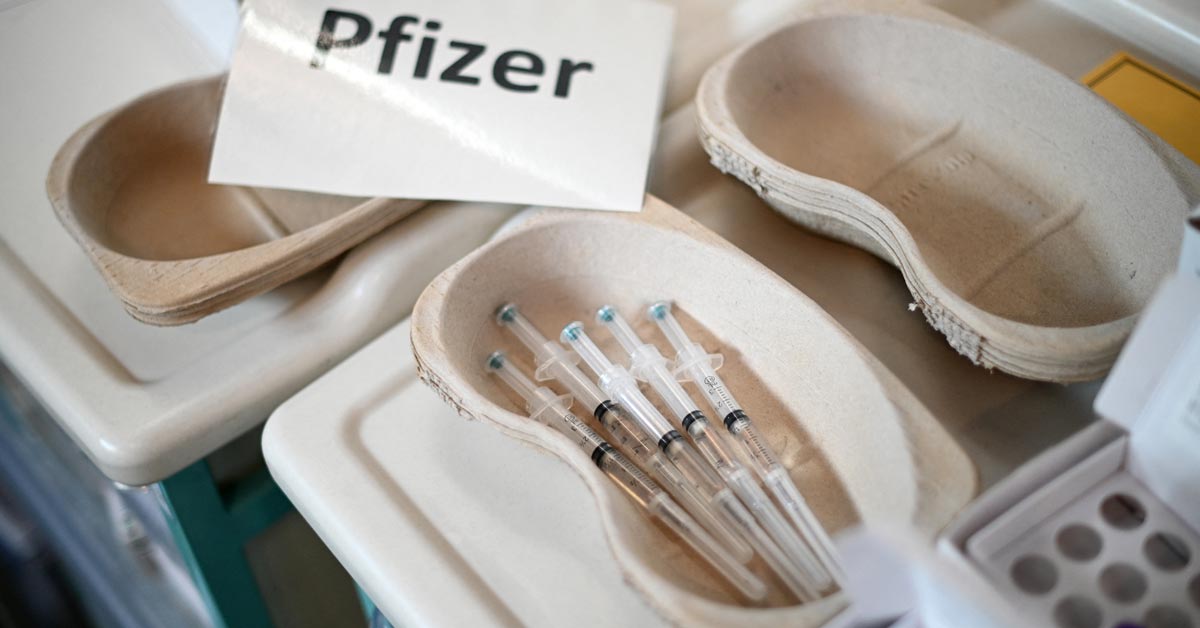It has been a year since the United Kingdom (UK) became the first western country to license a vaccine against COVID and since then the world has embarked on a battle against the virus.
Here is a history of the vaccine development.
November 2020
At this time, there were a number of COVID vaccine candidates being tested in large phase 3 clinical trials. Among the jabs being considered was the University of Oxford/AstraZeneca one. At the end of the month, the analysis indicated its promise - with data showing it was 70.4 percent effective when combining data from two dosing regimens.
Sarah Gilbert, professor of vaccinology at the University of Oxford, said the news took the world, “another step closer to the time when we can use vaccines to bring an end to the devastation caused by SARS-CoV-2.”
Pfizer and BioNTech also announced the effectiveness of their jabs this month. The efficacy portion of their COVID-19 vaccine trial had been completed, showing the vaccine to prevent 95 percent of cases of the disease.
December 2020
The UK became the first western country to license a vaccine against COVID, with the first jab approved the Pfizer/BioNTech one. It was authorised for emergency use by the Medicines and Healthcare Products Regulatory Authority (MHRA) and initially given to the most at risk.
Among the first people in the world to receive a jab was 90-year-old Margaret Keenan, who was inoculated at 6.31 am on 8 December in Coventry, marking the start of a historic mass vaccination programme.
The vaccines were initially administered at 70 hospital hubs around the UK, with patients aged 80 and over who are either already attending hospital as an outpatient or are being discharged home after a hospital stay, being first in line.
January 2021
Dialysis patient Brian Pinker, 82, become the first person to receive the Oxford/AstraZeneca COVID-19 vaccine - which was approved for use in late December. The retired maintenance manager got the jab at Oxford’s Churchill Hospital. Health secretary Matt Hancock said it was a “pivotal moment” in the UK’s fight against the virus.
UK’s National Health Service (NHS) medical director Prof Stephen Powis said: “The NHS’ biggest vaccination programme in history is off to a strong start, thanks to the tremendous efforts of NHS staff who have already delivered more than one million jabs.”
The UK secured 100 million doses of the Oxford/AstraZeneca vaccine.
March 2021
Several European countries stopped using the Oxford/AstraZeneca COVID vaccine amid fears it caused serious blood clots. At the time, AstraZeneca said 17 million people had so far received the jab, and the blood clot incidents were “much lower than would be expected to occur naturally in a general population”. Germany, France and several other countries eventually resumed rolling out the vaccine after finding it was safe.
May 2021
The UK hit a milestone of having delivered more than 60 million coronavirus vaccine doses. The news came as a study found the Pfizer and AstraZeneca vaccines are highly effective after two doses against the variant identified in India.
Dr Jenny Harries said the study was the “first real-world evidence of vaccine effectiveness” against the variant and the “straightforward message” was for people to make sure they took up the offer of the second jab.
June 2021
Half of all adults aged under 30 in England received a first dose of a COVID vaccine this month, three weeks after the coronavirus vaccination programme was opened up to those in their 20s.
Vaccines minister, Nadhim Zahawi, praised the “phenomenal achievement”. He added: “It’s fantastic to see so many young people coming forward for their jabs, doing their bit to protect themselves and their loved ones.”
As new mutations of the virus emerged, including the Delta one, the jabs remained effective against the most severe outcomes, such as death.
July 2021
Changes were introduced that meant double-vaccinated travellers from the United States and most of Europe had their jab status recognised and so could avoid quarantine when arriving in England.
The UK government announced a significant loosening of international travel restrictions to let millions more people visit friends and family in the country, as well as boost the struggling tourism and aviation sectors.
October 2021
Former UK prime minister Gordon Brown called on the government and other G20 countries to urgently arrange a military airlift of surplus COVID vaccines to poorer countries before they expire, saying it is their “moral responsibility” to do so.
He organised a letter from more than 160 former world leaders and global figures calling for richer countries to send 240 million vaccines stored in the US, Europe and Canada to countries struggling to vaccinate their populations.
November 2021
The UK government set out a mandate that meant those working in care homes had to be vaccinated. This resulted in around 50,000 care home staff leaving their jobs.
During this month, the UK government also extended the remit of who would get booster jabs. Sajid Javid urged people aged 40 to 49 to come forward for their third dose of vaccine, as the offer of a booster is extended to them.
The COVID booster vaccination scheme was expanded to try to combat the spread of the Omicron variant.
The views expressed in this article are the author’s own and do not necessarily reflect those of The ASEAN Post.
